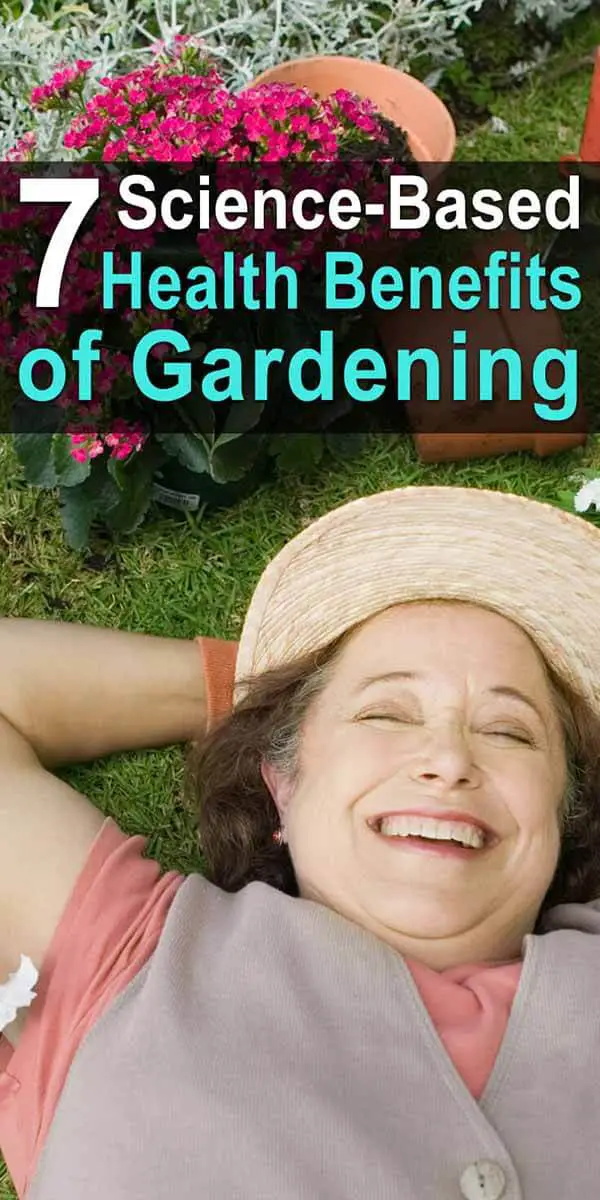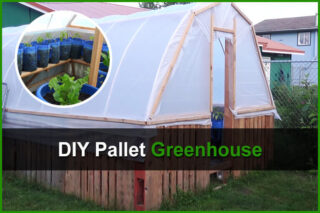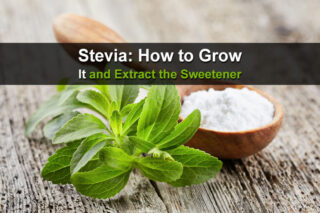Estimated reading time: 6 minutes

Most people have fond memories of their grandparents tending to their garden – for very good reason – because they held a very firm belief that it was good for them and, for many of those, helped them get to that age in the first place. They would have been completely right.
Gardening has proven mental and physical benefits for you, your family, your community, and even has positive global impacts: No homesteader can afford to be without a garden. Here’s why…
1. Seeing Green Things Makes You Healthier
Published in 2016, a study called Exposure to Greenness and Mortality in a Nationwide Prospective Cohort Study of Women took a closer look at a total of 108,603 women through the Nurses’ Health Study to see if there are any potential links between ‘residential greenness and mortality’ – yes, in layman’s terms, that’s the amount of foliage ranked up to the deaths within the proximity thereof.
Not surprisingly, the study found that more vegetation in the area – more plants, trees, and gardens – decreased the mortality rate. According to the study, an effort to increase the greenery in the area “may provide opportunities for physical activity, reduce harmful exposures, increase social engagement, and improve mental health.”
2. Microbes in Soil Act as Antidepressants
The microbes in healthy soil could have positive effects on your health. In fact, they might even act as a natural antidepressant and improve your learning capacity. How? Researchers Matthews & Jenks (Ingestion of Mycobacterium vaccae decreases anxiety-related behavior and improves learning in mice) found that a microbe called Mycobacterium vaccae – naturally found in soil – caused a significant decreased in so-called ‘anxiety-related behavior’ when given to mice, apparently by putting them through the same tests they would have in the case of testing certain antidepressants.
Overall, it also increased their capacity to learn. In four weeks, the mice had learned to perform better through what they called the “maze test” – and yes, we’re assuming that kind of maze test we thought only showed up in cartoons…
Exposure to healthy soil is good for you – and we can prove it.
3. Trees Produce Vital Oxygen and Do More
We already know that plants and trees produce oxygen through photosynthesis: It’s one of the first things they teach you in science class. But have you ever stopped to really think about the impact? In urban areas (where carbon emissions are far higher) the oxygen is desperately needed and under-supplied. Those who have respiratory issues can often testify to the discomfort they feel after a while in an industrial area.
Oxygen Production by Urban Trees in the United States (2007) by Nowak, Hoehn and Crane is thanks to Arboriculture & Urban Forestry. According to the study, “Urban forests in the coterminous United States are estimated to produce ≈61 million metric tons (67 million tons) of oxygen annually, enough oxygen to offset the annual oxygen consumption of approximately two-thirds of the U.S. population.” That is an astronomical amount – and something to think about.
The study goes a little further, looking to prove that the benefits of trees lie not only in the oxygen production (which the study notes is often overestimated) but in pollution removal. Either way, you could do with planting a tree!
4. Gardening Can Benefit Everyone
In 2012, a study called Impact of a Community Gardening Project on Vegetable Intake, Food Security and Family Relationships: A Community-based Participatory Research Study took a closer look at 42 families over a long period of time to see how their community felt about certain issues before and after a community garden.
With the introduction of a garden to the community, ‘adult vegetable intake’ went up from 18.2% to an incredible 84.8% when surveyed “several times per day”. Children, on the other hand, went up to 64% (from 24).
Community members were also less likely to skip meals and worried less about running out of food before they ran out of money – a common worry for anyone caught in the rat-race. Gardening is great for your health – and everyone around you, too.
5. Gardening is Highly Therapeutic
Gardening doesn’t just act as an antidepressant for physical reasons; a study published in 2012 examined the use of gardens as therapy (horticultural therapy or HT) for elderly patients.
What Is the Evidence to Support the Use of Therapeutic Gardens for the Elderly? found that therapeutic gardens improved their sleep cycle, reduced their pain and stress levels, stress-related behavior and even likelihood of falls.
Further, taking a walk through a garden improved comprehension during tests, and that gardening reduced cortisol levels more than, say, another ‘relaxing’ activity like reading. Yes, this means that gardening is therapeutic, not just for the elderly, but for anyone.
6. Gardening Makes Kids Better Adults
Let’s not forget that gardening is also beneficial for kids. Childhood Environmental Experiences and Adult Sensitivities to Urban Forests (2000), funded by the US Forest Service, surveyed people to find the link between how much people know about trees and whether they grew up close to them.
The survey included questions such as “Was your childhood home next to a garden or flower beds” versus “Was your childhood home next to large buildings?” and “Did you pick fruits, flowers or vegetables from a garden as a child?” It confirmed that our childhood memories, when rooted in nature, makes for nature-conscious adults.
7. You Can Benefit From Your Garden
There are more studies being conducted on a daily basis about the health benefits of specific plants – a lot of which you can plant in your own garden and introduce to your life and diet.
- The effects of lavender oil inhalation on emotional states, autonomic nervous system, and brain electrical activity (2012) surveyed twenty participants and found that inhaling lavender oil dropped their blood pressure, heart rate, and temperature – even relaxing their brain activity considerably.
- A 2015 study (Consumption of spicy foods and total and cause specific mortality) conducted with 487, 375 male and female participants from China over several years examined the mortality rate associated with things like heart disease versus their consumption of spicy foods. Spicy foods reduced the overall mortality rate related to, for example, heart disease considerably.
Not only is gardening good for you, but what you get out of your garden can drastically change your health and the way you view and prepare food. Plus, you can have a hell of a lot of fun – and there’s no reason you can’t plant in pots if you’re limited to an urban area or simply pressed for space.










